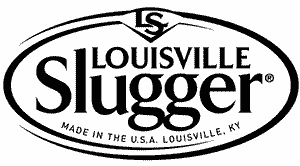» Latest news Sections: Obituaries | Tournaments | Womens' Corner | Editorials » For Advertisers: Editorial Calendar
The Field of Dreams and Me
April 1, 2020

An excerpt from An Astoria Kid Makes Good, an autobiography by Florian Michael Sisavic.
My father abandoned me when I was five years old and I had suppressed my feelings about him until a visit to the Field of Dreams in 2005 when I was 66.
I choke up with the mention of Kevin Costner’s film Field of Dreams and could fill a small pond with the waterworks I’ve shed while watching Ray Kinsella play catch with the reincarnated father he never really knew. So I jumped at the chance to visit the movie set for Field of Dreams when I was in the neighborhood.
My 65+ softball team played in the Senior Softball World Series in Des Moines, Iowa. Our games ended early one day, giving Coach Bill and Nancy Winter and me the time to drive the three hours to Dyersville to see the baseball field memorialized in Costner’s classic 1989 film.
Just like in the film, the field was in the middle of nowhere and could be seen from miles away in the flat Midwest lowlands. We approached it on the same road that the hundreds of cars used in the scene that vindicated Costner’s dream: “If you build it, they will come.” We were coming, too.
We parked along the third-base side of the baseball field and I walked toward the sun-soaked field in slow motion. I wanted to take it all in and didn’t want to miss the warmth of the hot summer sun or a single blade of grass. I began to sense the emotions building and let them flow. I knew the whole experience was going to be tough for me, but I wanted to feel it all.
When we got to the field, it was as if I had walked onto the set of the film—it was perfect. The white farmhouse, swings and all, was there along the first-base side just as it should have been. The tall cornstalks surrounded the outfield. The grass smelled so green, it was unmistakably a baseball field. The bright sun made the farmhouse whiter, the grass greener, and the deep-blue sky bluer. And the baseball diamond was exactly the same as those in thousands of places throughout America—perfectly typical.
About 20 people were on the field—mostly boys, fathers, and grandfathers with some girls and mothers. A few worn wooden bats lay on the ground near home plate and ragged baseball gloves were on the ground in the infield and outfield. Adults and children were hitting, throwing, and catching several baseballs. I watched for a while with Bill and listened to the crack of the bats and the slaps of the balls as each one hit a leather glove squarely.
But mostly, I noticed the silence. There was little talking except for the occasional “Come on, batta, batta, batta.” Everyone seemed to know what he or she wanted to get from those few solemn minutes. A father pitched to his son and then the son pitched to his father. The father and son moved to the outfield and let others pitch and hit. Some players ran the bases, reliving a personal home run thrill or acting out a game-winning Jackie Robinson in-the-park homer.
Nothing was organized, and at the same time everything was totally organized. No one kept score or counted outs. We were all on the same team and we took our turns when it seemed naturally right. Bill and I looked at each other and we just knew it was our turn. I took the mound and lobbed a few balls in Bill’s direction at home plate and he smashed every one. Then we switched positions. I grabbed a bat, knocked the clay out of my sneakers, stood in the batter’s box, and waited for Whitey Ford’s fastball. It was a bit of a miracle that I even saw the ball through the tears but I made good contact a couple of times.
Before we left the diamond, Bill and I played catch at the exact place where Ray Kinsella and his dad played. I know I’m not the only one who has had the emotional flood of this experience, but I shook so hard that I was barely able to throw the ball twenty feet. We stopped playing catch and I went off to be alone.
I walked into foul territory behind third base and sat down on the grass just as I remembered—or imagined—I had when I was about four years old in Central Park with my father. I waited and looked for a third baseman, a total stranger, to throw his glove over to little Butchie, as my father had done 60-plus years previously, but of course it didn’t happen.
Bill and Nancy went into the souvenir shop, the only distraction from the dream part of the experience, and I strolled toward the cornfield past center field, smudging the tears across my face with my sleeve. Although I knew my father would not be anywhere near the field, I still tried to imagine meeting him again. What would he think of me? What would he say? What would I say?
Of course, no one came out of the cornfield. I walked into the tall stalks alone and looked in all directions, hoping for a sign from who knows where or of who knows what. I found myself in the middle of the stalks and couldn’t hear a sound or see anything but corn. I knew it was impossible but since no one could see or hear me, I whispered, “Steve?” and then, “Father?” Not surprisingly there was no response.
But then there was a rustle as the cornstalks opened and a man in his early forties walked toward me from the field. The tears were thick and I couldn’t focus. I wiped them away and squinted until the man became clear.
“Hi. You doin’ okay, old-timer?” I couldn’t answer. “You don’t look so hot—is there something wrong?” I nodded slightly to indicate I was okay. “I noticed you stopped playing catch out there and you started to get emotional and when you walked into the cornfields and didn’t come out, I got worried. You okay?”
I said, while sniveling through the words, “Thanks I’m okay just reliving some things.”
“Yeh me too,” he said with a sniffle.
As we walked through the cornfield and toward the baseball field, the younger man tried to console me. “I watched you out there and you’re a pretty good player for your age.” I knew he meant well but I lost it and walked out of the cornfield with tears dripping on my sneakers.
So in the summer of 2005 at age 66, I finally came to grips with the reality that I had indeed missed something by being raised without a father. I wasn’t sure what it was that I missed—and I still might not know—but the deep sorrow I felt in that cornfield was too painful for me to continue my unconscious charade that had always said, “Nah, I didn’t miss him.”














